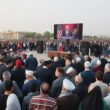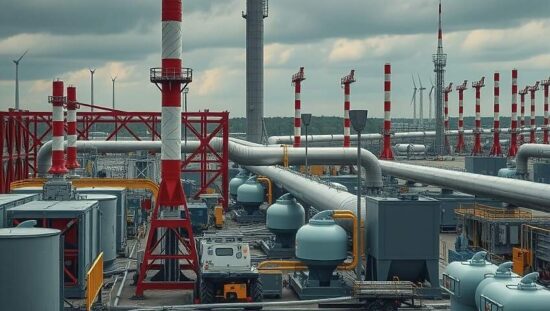Markus Söder, leader of the CSU and Bavarian Minister President, is escalating the debate surrounding Germany’s energy policy, calling for a significant shift away from current approaches. In an interview with “Welt am Sonntag”, Söder argued that the country’s reliance on heavily subsidized renewable energy sources and a simultaneous hesitancy to utilize domestic resources is stifling economic recovery.
Söder’s critique centers on what he perceives as a dangerous dependence on imported liquefied natural gas (LNG) from the United States, while simultaneously overlooking existing gas reserves within Germany. He specifically pointed to assessments from the Federal Institute for Geosciences indicating decades of untapped gas supplies in Northern Germany, criticizing the decision to forgo their utilization in favor of more expensive imports. “We are artificially suppressing energy prices with state money, instead of focusing on cost-effective energy production” he stated.
The Minister President’s call extends beyond simply re-evaluating gas extraction. He champions a re-examination of nuclear power, advocating for the construction of smaller, modular reactors – often referred to as “mini-reactors” – referencing similar developments in Canada, Switzerland and other European nations. He claims these newer reactor designs would require significantly less subsidization than previous generations of nuclear plants.
Söder’s most pointed criticism, however, was reserved for the Federal Ministry for the Environment, Consumer Protection and Nuclear Safety. He accuses the ministry of being bound by outdated “green dogmas” and lacking the necessary flexibility to adapt to evolving circumstances. While acknowledging Minister Carsten Schneider’s willingness to engage in dialogue, Söder expressed concern that bureaucratic inertia within the ministry, inherited from previous leadership, continues to dictate policy decisions regardless of the current minister’s views. “Too much within the ministry is still anchored in old green dogmas” he asserted, implicitly criticizing the legacy of former Environment Minister Jürgen Trittin.
The Bavarian leader’s interventions are likely to further polarize the energy debate in Germany, putting pressure on the federal government to reconsider its approach and potentially sparking a deeper ideological clash between those prioritizing rapid decarbonization and those emphasizing energy security and economic viability. The call to revisit nuclear and domestic resource extraction could also reignite concerns about environmental impact and the long-term sustainability of Germany’s energy transition.





